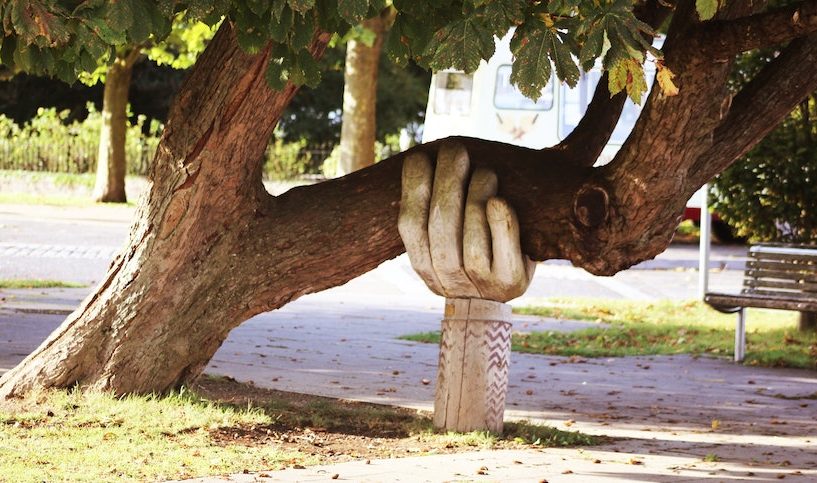The world is in the grip of an almost universal feeling of panic over the pandemic that is COVID-19. While there is cause for concern and for action, panicking does nothing to help the situation. Nothing.
Panic is a state of emotional and psychological hijack that almost completely erases the ability to be logical and rational. This is not great when trying to make decisions regarding the degree of danger or the possible responses or solutions to that danger.
This is not about coronavirus (though it’s a great example of what happens when decisions are based on fear instead of facts). It’s about the ways in which we face adversity and manage ourselves for an optimal outcome in the circumstances. Let’s face it…hoarding toilet paper is not a brilliant way to avoid the transmission of bacteria, germs, or viruses. If you’re drying your hands with toilet paper after washing them for the requisite, virus-killing 20 seconds, then one might justify a closet full of three-ply luxury rolls though I personally can’t imagine drying my hands with toilet paper. This is neither a logical nor reasonable response – it’s driven by hysteria and a ‘herd mentality.’
Panic causes tunnel vision. Calm acceptance of danger allows us to more easily assess the situation and see the options.
Simon Sinek
Panicking as a habitual, learned response to danger is unhelpful. There are times when an immediate lethal threat requires a flight/fight/freeze response as a time-limited life-saving action. But a sustained, fear-based reaction when confronted with life events such as the world is experiencing currently does nothing to advance effective management or workable solutions.
Here are some tips that might help you now and in the future. The hard truth is that our mobile, transient way of living makes us global citizens, susceptible to exposure to threats to health, safety, and economic stability. So how do we deal with legitimate fear in circumstances where the danger is real and sustained?
Get accurate information
There is nothing more panic-inducing than click-bait headlines, ‘talking heads’ sensationalizing inaccurate data, and agenda-driven politicians cherry-picking what information is shared. When it’s a health scare, go to the sources that are science-based, data-driven, and objectively reported. For example, in the current crisis, there’s a massive difference between the reporting by Fox News and the Center for Disease Control. Go directly to the source for accurate information and make decisions based on facts not fear.
Make a safety plan
Based on the facts you’ve learned, what is actually needed to minimize the risk and maximize the likelihood of a good outcome? For example, in this current crisis, if you determine that 14 days of self-isolation is the best response, what do you and your family actually need for that period? Make that happen and leave the rest for others who need to work their own safety plan.
Be mindful of your internal dialogue
The way we feel about anything is a result of the story we tell ourselves about the circumstances, not the event or situation itself. If the theme of the story you’re telling yourself maximizes the problem and minimizes your resources, you’ll live with panic. If the story you tell yourself is that the problem is big but your resources and resourcefulness are equal to the danger, you’ll have totally different feelings about the whole business. Does this mean there’s no danger? Of course not. It just means you’re not living with a constant sense of fear induced by the prediction of a bad outcome or epic failure.
Mind your language
Talk about the danger, whatever it is, in real terms. Be accurate, and factual. Bring your calm to the situation, not your fear.
Stay connected
Whatever the danger is – a new pandemic (remembers SARS, MERS, H1N1, Swine flu?), climate change, natural disasters, or something we haven’t encountered yet – it is true that we are global citizens, but in times like this, we need our near neighbors. Cultivate and maintain good social connections, friendships, and family relationships. We need each other, and we need to know we can count on someone to help if we need it, and we need to be willing to help others.
If you’re living in a state of fear, take a deep breath and consider how you can identify and marshal your resources to meet the danger, whatever it is. Be informed, rational, and reasonable. We are global citizens with an opportunity to be leaders in our local communities. There’s nothing like service to the greater good for helping our own perspective. We do have the resilience we need – we just need to own it.
Susannah-Joy is a psychotherapist and complex trauma specialist based in Canada. Find her on Twitter @aboutthattrauma, Instagram @SuJo1963 and Facebook @william.associates. Photo by Neil Thomas on Unsplash.







